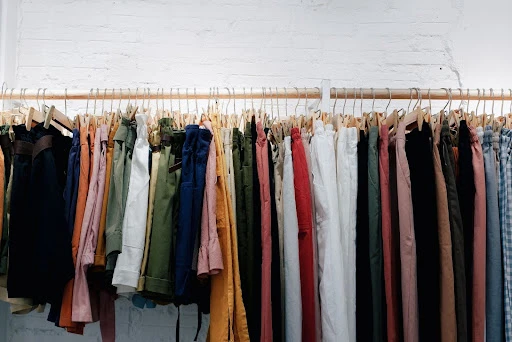Can Influencers Write Off Clothes? Fashion and Finances

Social media has brought so much to the world. It connects us in new ways and allows information to flow faster and more freely. And it’s given birth to entire new industries, including the rise of influencers.
Influencers are masters of more than social media, though. They’re skilled at maximizing multiple income streams and minimizing their tax liabilities, although the lines between the two sides of their lives are always more than a little blurry. That’s particularly true when it comes to business and personal expenses, leading to questions like: Can Influencers Write Off Clothes?
Saving money on taxes is important for everyone, and no less so for influencers like you. One thing you might be wondering is: Can clothing be considered a legitimate tax deduction?
The Role of Clothing in an Influencer’s Life
Everyone needs the right clothing, from teachers to auto mechanics. For influencers, the right clothing can make or break their reputation. The right wardrobe is an essential ingredient in building an influencer’s brand and reinforcing their online personality. However, it does more than that. It also impacts content, partnerships, and overall brand image.
For instance, a V-neck under a vest with a nice sports coat and the right jeans sets a casual but fashion-forward tone. On the other hand, a bowtie with a button-down and a newsboy hat creates a fashionable but very different image. The image an influencer cultivates communicates things to their followers, reinforces their brand and personality, and connects with the audience in deep ways.
As such, the right wardrobe is as much of a “must” for an influencer as wearing a uniform shirt and pants are for a baseball player. In that sense, you could certainly consider clothing a business expense. But not all your clothing can be deducted from your taxes. You’ll need to ensure every claim meets specific criteria set by the IRS.
Criteria for Deducting Clothing as a Business Expense
For clothing to qualify as a business expense, it must meet specific criteria, including the following:
- Exclusivity – The clothing isn’t something for everyday wear.
- Necessity – The clothing is essential for a specific shoot or event.
- Frequency – The clothing must be used frequently for business purposes.
- Affiliate Links – The clothing item(s) must be linked to affiliate links.
Potential Deductible Clothing Scenarios
With those criteria in mind, let’s look at a few potential scenarios to see what they mean in practice.
- Affiliate Links – Affiliate marketing is a tried-and-true way to earn income online. In this example, the influencer wears specific clothing during a shoot or event and then links via affiliate links to those clothing items on a retailer’s or manufacturer’s website and earns real revenue from link traffic. The links can be embedded in a transcript or description, or via embedded links in an image itself (like those Pinterest posts you’ve seen).
- Specialized Gear – Rarely are influencers generalized. Instead, they tend to focus on a particular field, usually their area of expertise from offline life. For instance, a chef might become a cooking influencer, while an athlete might become a fitness influencer. Specialized gear worn by influencers for these types of production, like a chef’s hat or athletic gear, can be deducted from that influencer’s taxes.
- Costumes or Themed Apparel – Sometimes, influencers must wear themed apparel or costumes for specific production needs, like themed events, specific videos, or particular photoshoots. This apparel is tax deductible.
- Branded Clothing – If an influencer forges a specific branded partnership and then wears apparel that features logos or is otherwise promotional for their brand partner, that apparel is tax deductible.
When Clothing Doesn’t Make the Cut
A lot of clothing is tax deductible. However, sometimes it just doesn’t make the cut. Knowing the difference can help spare you frustrating revisions on your tax returns or potential audits. So, what can’t be deducted?
- You cannot deduct everyday clothing that can be worn outside of business contexts.
- You cannot deduct wardrobe items bought for personal pleasure but featured once or twice on a platform.
- You cannot deduct clothing that doesn’t directly align with your brand or niche.
In other words, the clothing must be directly related to your work as an influencer, and it must align with your brand.
There’s more to it than ensuring your clothing meets IRS criteria. You must also document your expenses, just like documenting any other business expense you want to deduct.

Documenting Fashion Expenses
When it comes to documenting any expenses, keeping receipts is critical. Make sure your receipts are as detailed as possible, including the item, date purchased, retailer/location, and amount of purchase.
You must also back up each clothing deduction with legitimate business needs. You’ll need to make notes on the specific business purpose for each clothing item you want to deduct. When was it used? Why was it needed? How did it tie into your brand or fit within your business?
Finally, think about capturing behind-the-scenes content to further validate the business use of the attire. For instance, candid shots of you changing off-set before the shoot from street clothes into the new outfit that you want to deduct can establish that the outfit was worn strictly for business purposes.
If I wear a dress for a sponsored post, can I write it off?
If the dress was specifically required or provided for the post and is not suitable for general wear, it may be deductible. Documentation and context are crucial.
I bought shoes that I featured in several of my posts. Can they be written off?
It depends on the exclusivity of the shoes for business use or if there are affiliate links associated with the shoes. If they’re also frequently used for non-business purposes, it might be challenging to claim them as a business expense.
Can I write off clothing I purchase for attending industry events or award shows?
If the attire is exclusive to the event (i.e., not suitable for general wear) and is necessary for your professional image at the event, it might qualify. However, standard formalwear might not be deductible.
How should I track my clothing purchases throughout the year?
Make sure you maintain a dedicated log that holds all your records. You also need to notate the business purpose of each purchase, and possibly add photos or links to content where the clothing was featured.
Conclusion
There’s a very fine line between personal and business expenses when it comes to clothing for influencers. Can Influencers Write Off Clothes? Legitimate work-related business purchases can be deducted from your taxes, but you must be diligent about keeping receipts, documenting business use, and complying with IRS tax guidelines.
Not sure if your clothing purchases are tax deductible? Consult with a tax professional familiar with the influencer industry and prioritize accurate record-keeping.
